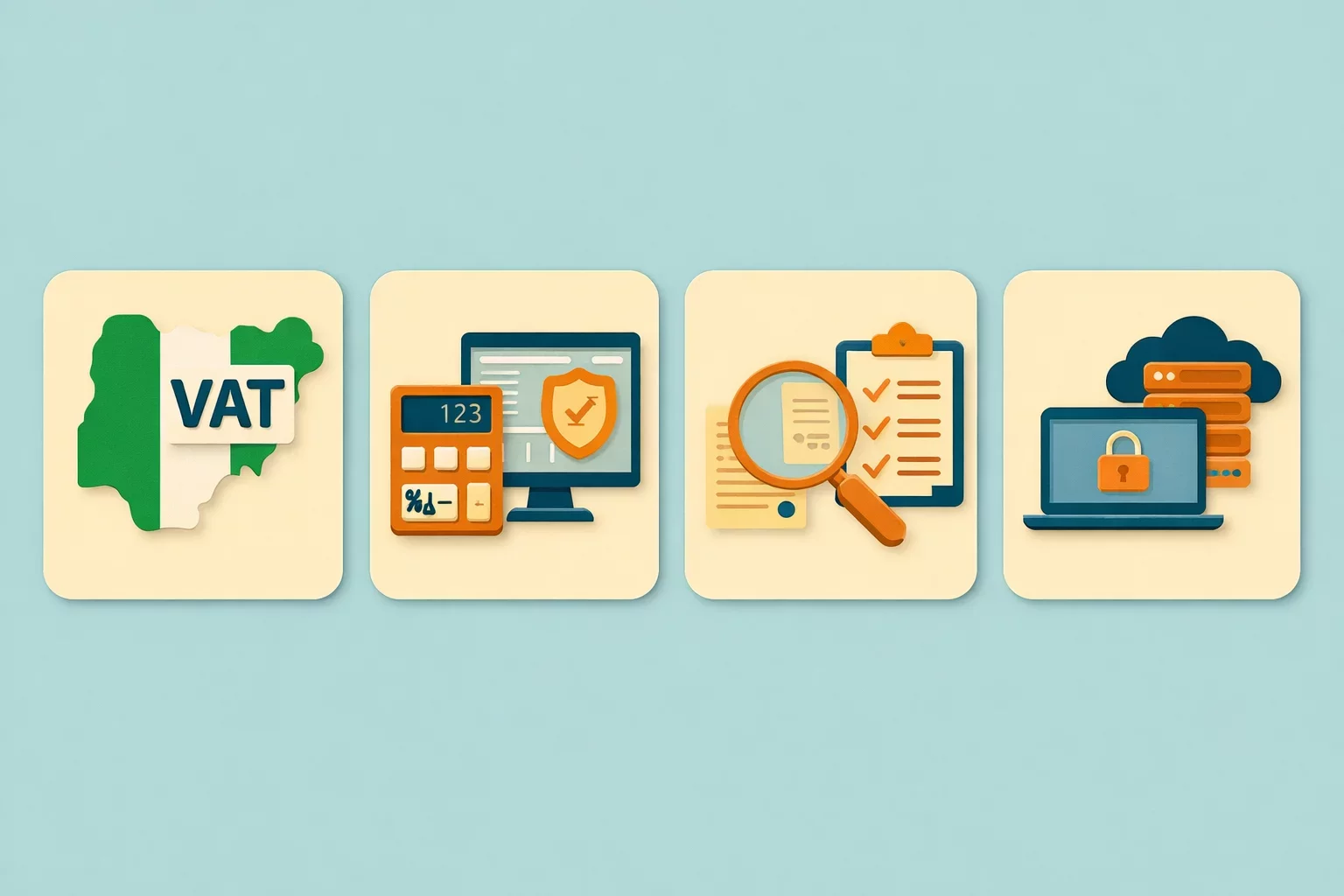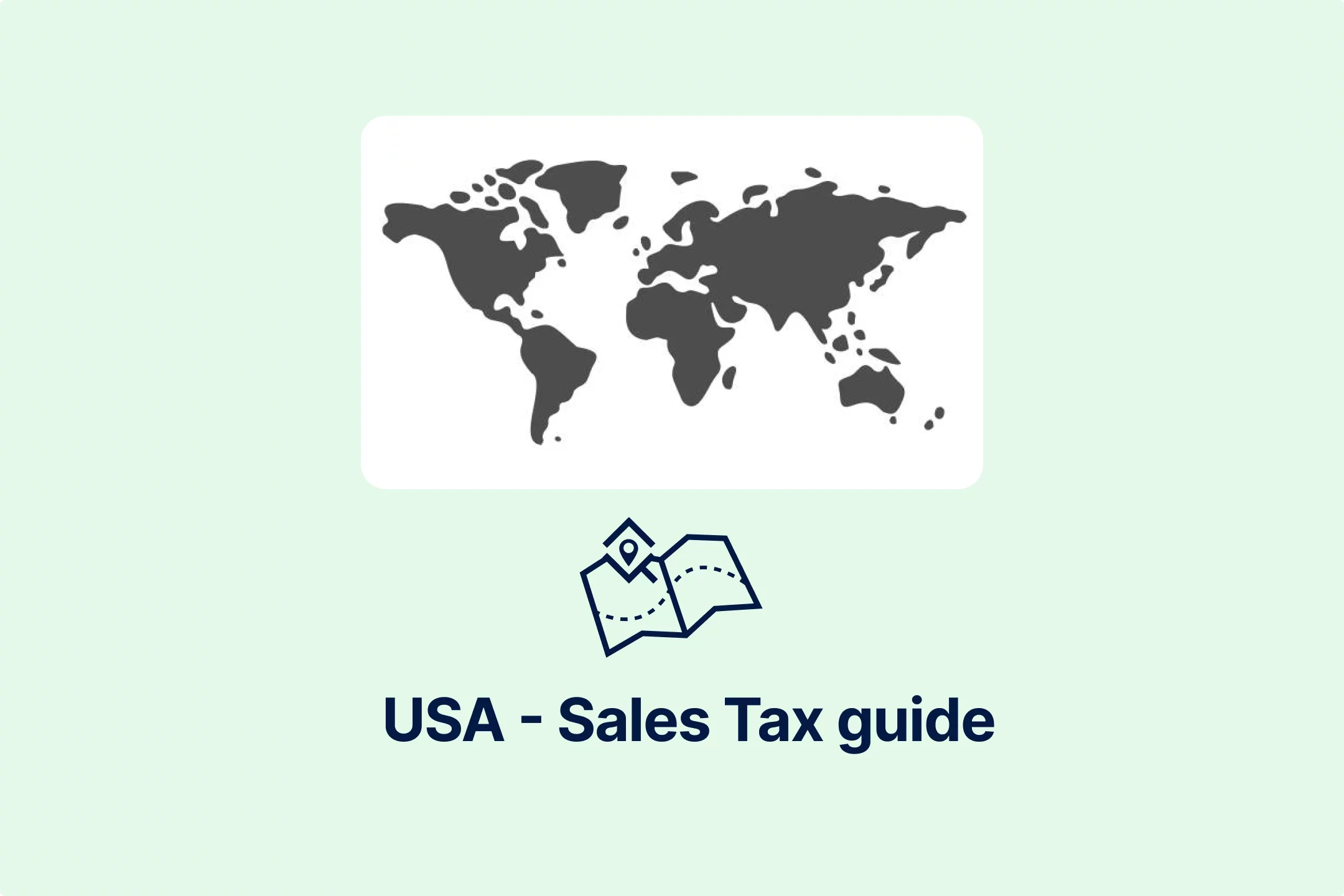Georgia Sales and Use Tax Guide: Rates, Nexus, Exemptions & Compliance Tips

Economic Nexus Threshold | State Tax Rate | Range of Local Rates | Streamlined Sales Tax Status | Administered by |
|---|---|---|---|---|
USD 100,000 or 200 or more separate sales | 4% | 1%-5% | Full Member | Georgia Department of Revenue |
Sales and Use Tax Basics in Georgia
Sales Tax
Businesses making taxable sales in the State of Georgia must register for a sales and use tax permit and collect and remit the appropriate amount of taxes on those transactions. Taxable sales include retail sales of most goods and specified services. Therefore, sales tax applies to the retail sale of tangible personal property, that is, tangible goods, digital products, and specific services.
Use Tax
In cases where tangible goods are purchased outside Georgia but then used, consumed, stored, or distributed within the state, the use tax applies. If the goods are used for the first time in Georgia, the owner or user becomes liable for the use tax based on the cost price. However, if the goods are used outside Georgia for more than six months before their first use in Georgia, then the tax is based on either the cost price or the fair market value, whichever is lower.
Georgia State Sales and Use Tax Rates
Georgia imposes a 4% statewide sales and use tax on taxable retail sales. Additionally, local governments may impose their sales and use tax rates, resulting in varying total tax rates across the state. For example, counties such as Appling, Atkinson, Bacon, and Baldwin have a combined rate of 8%, which includes the state tax.
Moreover, local counties may impose additional taxes, such as the Local Option Sales Tax (LOST), the Special Purpose Local Option Sales Tax (SPLOST), and the Education Local Option Sales Tax (ELOST). Additionally, certain areas, such as specific zones within Fulton County, may have unique tax rates due to special district taxes.
For example, the applicable sales tax rate in Milton and most of Fulton County is 7.75%. The 7.75% applicable rate consists of 4% Georgia state's statewide rate, 3% is Fulton County's sales tax rate, which funds County operations, and 0.75% is the Transportation Special Purpose Local Option Sales Tax (TSPLOST).
Tax-Exempt Transactions
Georgia tax exemptions are defined by state law and Department of Revenue regulations and apply to specific sectors, activities, and organizations. Therefore, sales to the federal government, the State of Georgia, and its counties and municipalities are exempt from sales and use tax.
Furthermore, agricultural producers who qualify for the exemption are exempt from paying sales and use tax on purchases related to agricultural production, including machinery, equipment, and energy used in agriculture. Additionally, the machinery and equipment necessary for manufacturing tangible goods are also exempt from tax. Non-profit organizations and educational institutions are also exempt from sales and use tax if their sales meet the eligibility criteria and they possess the necessary documents or certificates.
Nexus Rules in Georgia
Taxable persons making taxable sales or doing business in Georgia must register for the sales and use tax if they establish a nexus in the state. Nexus can be established through a physical presence in Georgia or by exceeding the economic or marketplace nexus threshold defined for remote sellers and marketplace facilitators. Additionally, Georgia, unlike some other US states, still has in place click-through and affiliate nexus rules.
Physical Nexus
A physical nexus is established when a taxable person maintains a tangible presence or engages in certain activities within a state. Therefore, if a company has an office, store, warehouse, distribution center, or any place of business within Georgia, it is considered to be physically present there.
Additionally, owning or leasing property, such as inventory or equipment, or having employees, agents, sales representatives, or contractors operating in Georgia, even temporarily, establishes a physical nexus. Keeping goods in a warehouse or storage facility, including through a third-party fulfilment center, such as Amazon, also contributes to the establishment of a physical nexus.
It is important to note that some activities, such as attending trade shows or conventions in Georgia, may not establish a physical nexus if specific conditions are met. For example, if the seller is only attending a convention or trade show for no more than five days in 12 months in Georgia, and generate less than USD 100,000 of net income from such activities in the prior calendar year, and do not have other physical presence in the state, they may not be required to register for sales and use tax.
Economic Nexus
Out-of-state or remote sellers may need to register for sales and use tax even if they are not physically present in Georgia. An out-of-state or remote seller must register for tax purposes if it establishes an economic nexus in the state.
As of January 1, 2020, economic nexus can be established by having a gross revenue exceeding USD 100,000 from retail sales of tangible goods delivered into Georgia, or by having 200 or more separate retail sales transactions for delivery into Georgia.
Marketplace Nexus
Since April 1, 2020, marketplace facilitators must register for, collect and remit Georgia sales tax if, in the previous or current calendar year, the total value of the sales price of its taxable retail sales sourced to Georgia, combined across all its marketplace sellers and the marketplace facilitator itself, equals or exceeds USD 100,000.
Click-Through and Affiliate Nexus
Sellers that have an agreement with Georgia residents to refer customers, such as through web links, telemarketing, or in-person referrals, and where these referrals generate over USD 50,000 in sales to Georgia customers within the prior 12 months, are considered dealers required to collect and remit sales tax. This is known as the click-through nexus.
Additionally, the 2012 legislation extended the dealer definition to sellers connected to related members with substantial nexus in Georgia. This is commonly known as the affiliate nexus. Therefore, if a related entity sells similar products under the same or a similar business name or trademark within the state, the seller is presumed to have nexus and must collect sales tax.
Taxable Goods and Services in Georgia
In Georgia, taxable goods relate to retail sale, lease, or rental of tangible goods or specified services unless specifically exempted or intended for resale in strict compliance with state regulations. Retail sale of tangible goods also includes the sale of natural or artificial gas, oil, electricity, solid fuel, transportation, local telephone services, alcoholic beverages, and tobacco products when sold for use rather than resale.
Additionally, charges for rooms, lodgings, or accommodations provided by hotels or similar establishments are taxable unless the stay is 90 days or longer. Admission fees for places of amusement, sports, and entertainment, such as theaters, amusement parks, athletic contests, skating rinks, and public dance halls, are also subject to taxation.
Bundled Transactions and the True Object Test
A bundled transaction is the sale of two or more distinct and identifiable products sold together for a single, non-itemized price, excluding real property and services related to real property. Generally, a transaction that includes a service is not bundled if it involves the sale of a service and a tangible good, where the tangible good is integral to the service being provided.
The same applies if the transaction includes two services, where one service is provided solely to enable the second, with the true object of the transaction being the second service.
Additionally, under the de minimis rule, if the taxable part of the transaction is 10% or less of the total price, or if a taxable tangible good accounts for 50% or less of the total value when bundled with exempt items, such as food or medical devices, the bundle rules do not apply.
E-Commerce Framework
E-commerce sellers, commonly referred to as out-of-state or remote sellers, must register for sales tax purposes if their sales gross revenue exceeds USD 100,000 from retail sales of tangible goods delivered into Georgia, or they conduct 200 or more separate retail sales transactions for delivery into Georgia.
Once registered, these sellers must collect and remit sales tax on their taxable sales in George, and must comply with tax return filing and due tax payment requirements.
However, if remote sellers also sell goods and services through online marketplaces or exclusively on marketplaces, different rules apply to them, known as marketplace seller rules.
Marketplace Rules
Marketplace sellers are individuals or businesses that make retail sales through or facilitated by any marketplace or platform operated directly or indirectly by a marketplace facilitator. Similarly, to the remote sellers, marketplace sellers that exceed the sales tax registration threshold must register for, collect, and remit taxes.
However, if a marketplace facilitator is registered for sales tax purposes, the marketplace seller that only offers and sells goods and services through that facilitator is not required to collect and remit taxes, as the facilitator is liable for those taxes. Nevertheless, if the marketplace can demonstrate that non-compliance with sales tax requirements was caused by the marketplace seller, by providing insufficient or incorrect information to the facilitator, the marketplace seller is liable for any uncollected taxes.
Digital Goods and Services
Retail sales of digital codes, specified digital products, and other digital goods are subject to sales and use tax rules and regulations. Therefore, it is necessary to determine what is covered by these terms.
Digital codes are keys or activation codes that grant the right to access one or more specific digital goods, but do not include codes representing stored monetary value, such as gift cards or certificates redeemable for digital goods up to a cash value.
Specified digital products include items transferred electronically to an end user, such as digital audio-visual works, digital audio works, or digital books. Other digital goods refer to items electronically transferred to a user, and include digital products such as artwork, photographs, periodicals, newspapers, magazines, video or audio greeting cards, and video games or other forms of electronic entertainment.
Digital Marketplace
Digital or online marketplaces are liable for collecting and remitting sales tax on behalf of marketplace sellers if they exceed the marketplace nexus threshold. However, to be subject to these rules, marketplaces must meet other requirements to qualify as facilitators.
For a marketplace to be considered a facilitator, it must help marketplace sellers make retail sales that are taxable under Georgia law. This can be achieved by providing services such as promoting, marketing, advertising, taking orders, or offering the infrastructure, whether physical or electronic, that connects buyers and sellers.
Additionally, marketplaces must facilitate communication between the seller and buyer to be considered marketplace facilitators. Notably, simple processing of payments alone does not qualify a marketplace as a marketplace facilitator.
Digital Platform Operator
Marketplaces that meet all the requirements to be considered marketplace facilitators are those whose total value of taxable retail sales sourced to Georgia, including those of the marketplace facilitator and its sellers, equals or exceeds USD 100,000 in the previous or current calendar year, must register for sales tax.
From the moment they register, they must report all facilitated sales under a marketplace facilitator sales and use tax account number through the Georgia Tax Center (GTC). If a marketplace facilitator also makes direct sales to consumers, such sales should be reported under a separate sales and use tax account number.
Filing and Payment Requirements in Georgia
In Georgia, most taxable persons file monthly sales tax returns, which are due by the 20th of the month following the reporting period. However, the filing frequency may be changed by submitting a written request to the Department of Revenue. A sales tax return must be filed, even if no sales were made or no tax is due during the reporting period.
Taxable persons whose tax liability exceeds USD 500 for any return must file a tax return and pay the due taxes electronically through the Georgia Tax Center (GTC).
Penalties for Non-Compliance with Sales and Use Tax Requirements
Those who fail to meet reporting requirements are subject to a penalty of 5% of the unpaid tax assessed for each month or part thereof, up to a maximum of 25% of the tax due. Furthermore, those who fail to make tax payments within the provided deadlines risk facing a penalty of 0.5% of the unpaid tax applied for each month or part thereof, up to a maximum of 25%.
In addition to stated penalties, non-compliance may result in interest on unpaid taxes set at an annual rate equal to the Federal Reserve prime rate plus 3%.

Featured Insights

Nigeria VAT Compliance: TaxPro Max Explained
🕝 March 3, 2026More News from United States
Get real-time updates and developments from around the world, keeping you informed and prepared.
-e9lcpxl5nq.webp)







-fd4vrjrcmo.webp)











-qoqtiao7l2.webp)





-o0xyg5unvs.webp)










-sug7vykj81.webp)

















-pofe7ucwz3.webp)









-de8hdb1bn3.webp)








-xbhr0m4jsb.webp)


-ae6fi6cjox.webp)













-b0fpsws1w1.webp)





















-x78wuofpzj.webp)
















-b44f1vjl1i.webp)

-priw8nq5xc.webp)


.png)

.png)






























